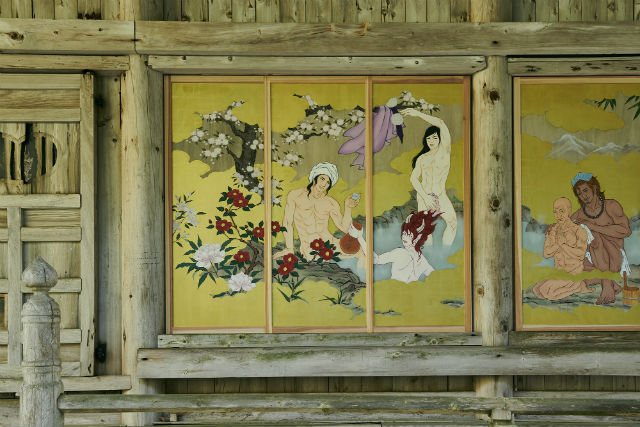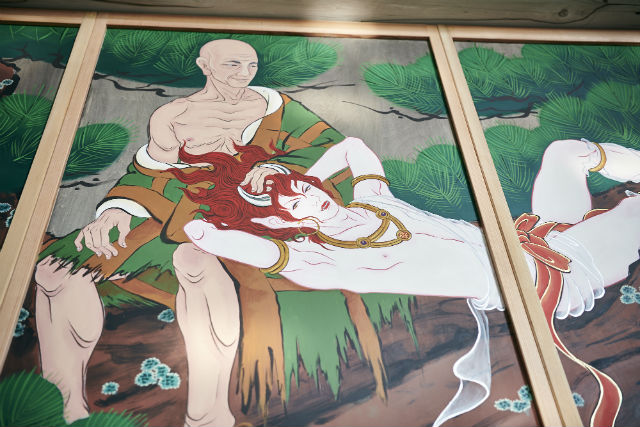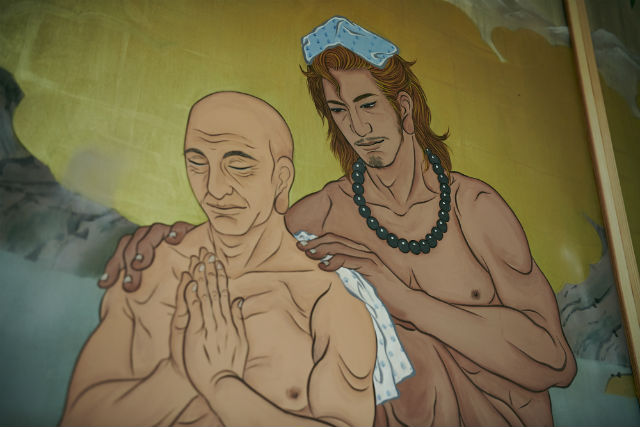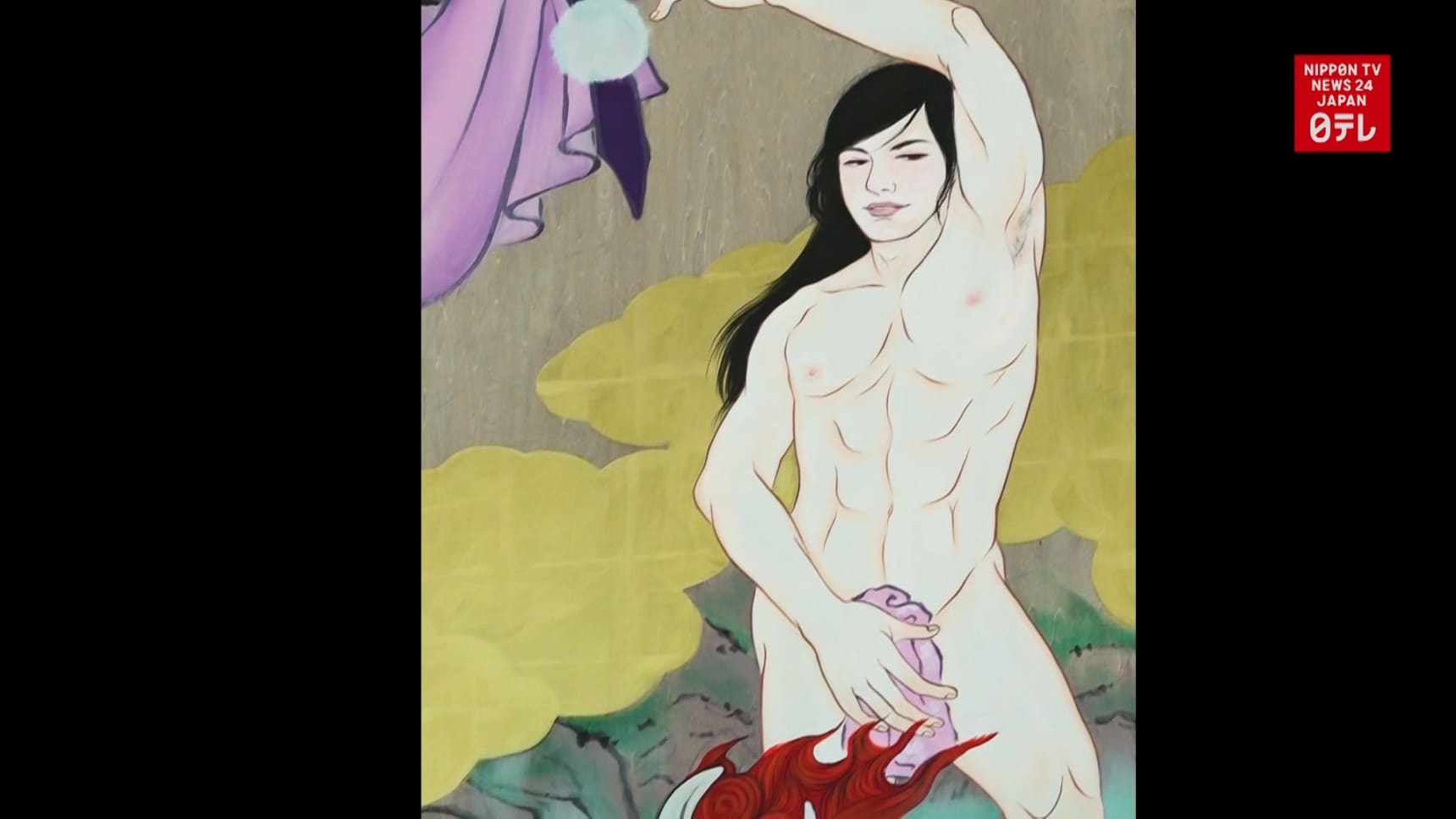Stale
love
Someday,
Someday,
I
will dis-tune myself
From
the songs I sing.
I
will sing something different from
The
tender caress lying in your touch
The
different route words carved on your lips.
I'd write something,
I'd write something,
Not
about the nights we danced in the rain
Or
the demon that runs when your beauty sparkles from afar
Not
about the promise that shivers in your eyes
When
I pluck the stars and nail them in your balls
Or
the scent of love that burns incenses
From
your bosom to my temple.

Ikemen Kanno Emaki (Scroll of Handsome and Sensual Men), Kokujoji -- Ryoko Kimura






Founded in 709 by Genmei-tenno, Kokujoji is the oldest Buddhist temple in Niigata prefecture. It is associated with the Shingon school of Japanese Buddhism. When he was in his 20s Yamata Kotetsu succeeded his father as head priest in 1996, at a time when the declining number of parishioners led to financial difficulties. To attract younger visitors he commissioned Ryoko Kimura to create manga-style scrolls on panels that were then screwed into the outer walls of the temple’s main hall. They depict historical or mythological figures that have some connection to the temple. In one painting, they are taking an open-air bath: Uesugi Kenshin, a local 16th-century daimyō who was believed to be an avatar of the god of war Bishamonten, wearing only his signature white hood, smiles at the oni (demon) Shuten-dōji (the "sake-drinking lad") who would be beheaded by Minamoto no Raikō after visiting the shrine; behind them Minamoto no Yoshitsune (a 12th- century samurai who was raised at the temple after his father was slain in the Heiji Rebellion against Taira clan control of the empire) is about to enter the bath. On the panel to their right Minamoto no Yoshitsune’s retainer sōhei (warrior-monk) Musashibo Benkei (variously described as the offspring of a temple god or the son of a head priest who raped a blacksmith’s daughter) scrubs the back of Taigu Ryōkan, an eccentric 18th-century monk who spent a score of years at the temple; he is kneeling, his eyes are closed, and his hands are joined in prayer, the posture he maintained at his death in 1831. Ryōkan was a noted, unorthodox, poet. In one of his poems he criticized other poets’ reliance on outdated Chinese models:
ReplyDeleteHow pitiful, those virtuous fellows!
Moving into the recesses, they immerse
themselves in composing poetry
For Ancient Style, their models
are the poems of Han and Wei
For recent Form
the T’ang poets are their guide
With gaudy words their lines are formed
And further adorned by
novel and curious phrases
Yet if they fail to express
What’s in their own minds
what’s the use, no matter
how many poems they compose!
In another work he indicated his own approach:
Who says that my poems are poems?
My poems aren’t poems at all
When you understand
That my poems really aren’t poems
Then we can talk poetry together